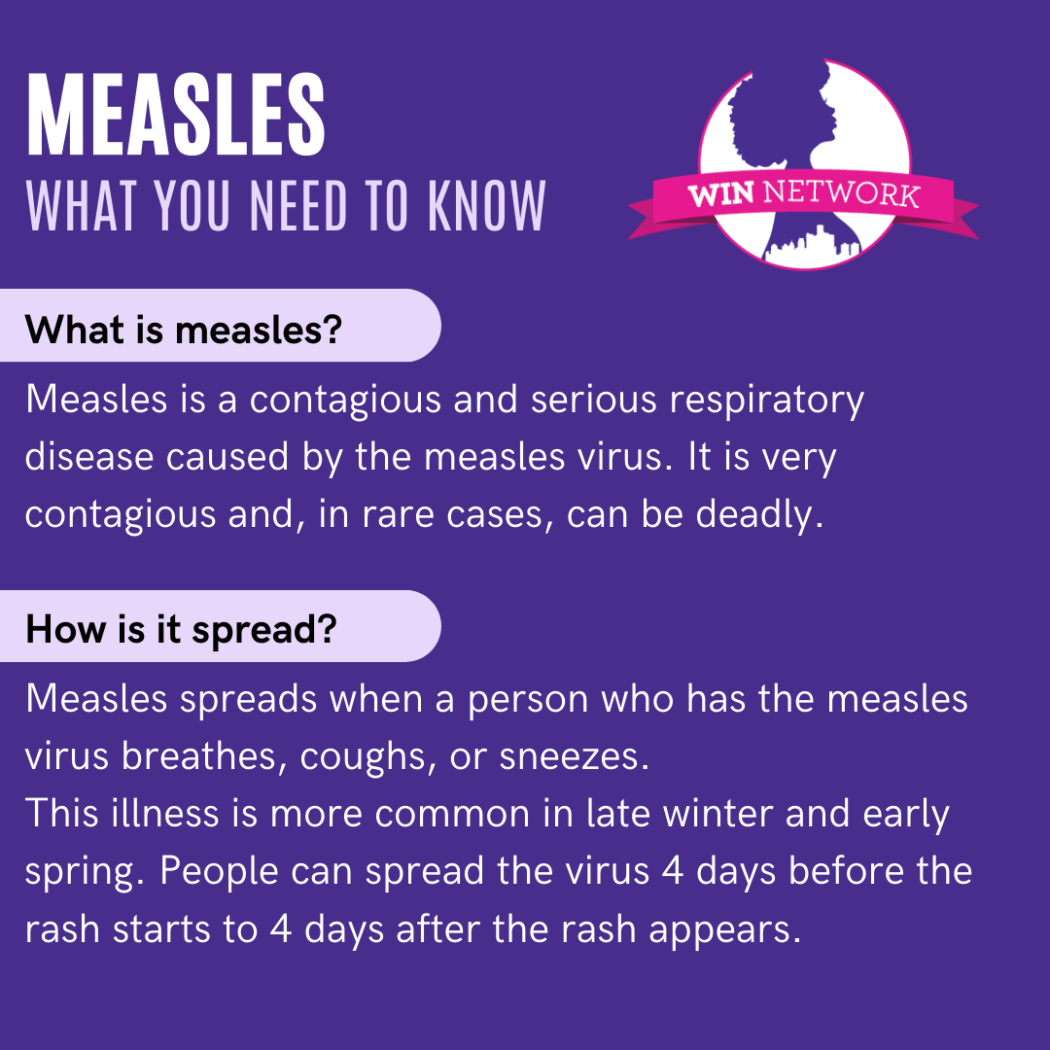Why is Measles on the rise, and what can we do about it?

What is Measles?
Measles, also known as rubeola, is a highly contagious viral infection caused by the measles virus. It spreads when an infected person coughs or sneezes. Once you get it, the virus causes many symptoms, including fever, cough, runny nose, red eyes, and a distinctive rash that usually starts on the face and spreads to the rest of the body.
Why Should We Worry About Measles?
While measles may seem like a thing of the past, we have seen cases of measles increase recently. More parents are deciding to skip or delay their children’s vaccinations, and as a result, measles is starting to come back. It continues to be a significant threat to public health, especially in areas with low vaccination rates. There are many reasons for measles comeback, including vaccine hesitancy, lack of access to immunization, and global travel, which helps the spread of the virus across borders. Outbreaks of measles can lead to serious complications, such as pneumonia, encephalitis (inflammation of the brain), and death, particularly among young children and people with compromised immune systems.
How Do I Prevent Measles?
The most effective way to prevent measles and its complications is by getting the measles vaccine. The measles vaccine, typically administered as part of the measles, mumps, and rubella (MMR) vaccine, provides immunity against the virus. It’s important for individuals to receive two doses of the vaccine to make sure you have maximum protection and contribute to herd immunity, which helps protect those who cannot be vaccinated.
Is the Measles Vaccine Safe?
The Measles, Mumps, Rubella (MMR) vaccine is very safe, and it is effective at preventing measles, mumps, and rubella. Vaccines, like any medicine, can have side effects. Most people who get MMR vaccine do not have any serious problems with it. Getting MMR vaccine is much safer than getting measles, mumps, or rubella.
How do I access the vaccine?
The Detroit Health Department offers vaccinations for measles and all childhood vaccination series, plus COVID-19, flu, and RSV at its Immunizations Clinic at 100 Mack Avenue. The hours are Monday – Friday from 8:00 a.m. – 4:30 p.m. Late hours are available on the first and third Thursday of each month, from 10:00 a.m. – 6:30 p.m.
Your doctor or healthcare provider can also offer advice and information about measles, including vaccination recommendations based on your circumstances.
Further details are available on the Detroit Health Department’s website or call 313-876-IMMS (4667).
Where can I get more information?
The Ceneters for Disease Control and Prevention (CDC) provides information on measles, including symptoms, prevention (including vaccination), outbreaks, and more.
Educating communities about the importance of vaccination, dispelling myths surrounding vaccines, and fostering trust in immunization programs are vital steps in safeguarding public health and preventing future outbreaks. Addressing vaccine hesitancy and misinformation is also important in combating the resurgence of measles.
As we navigate the complexities of the modern world, understanding and addressing the challenges posed by infectious diseases like measles are essential. By prioritizing vaccination and advocating for public health policies, we can work together to reduce the impact of measles and protect the health and well-being of our communities.